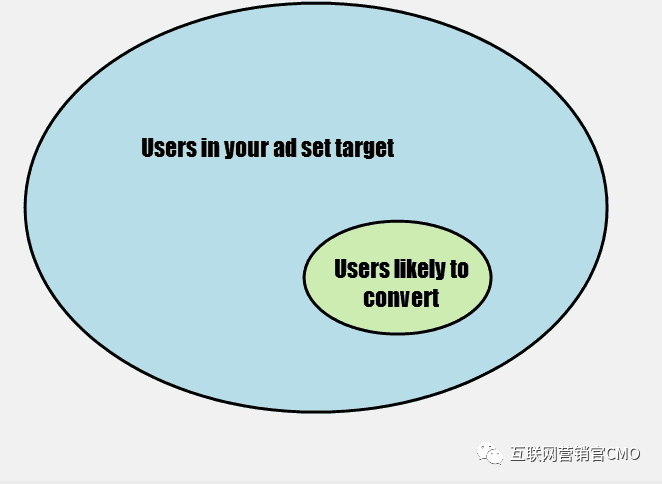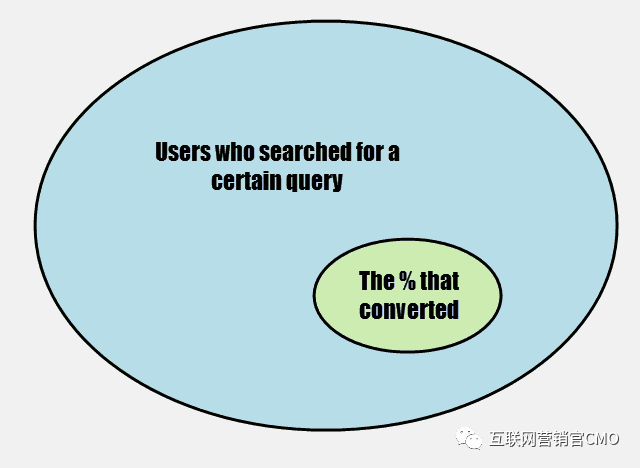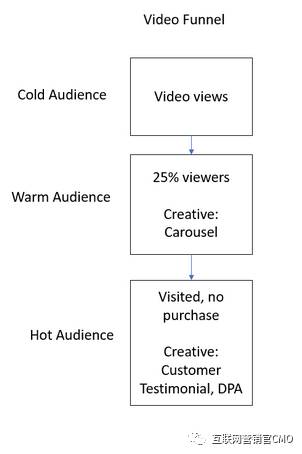How do I move from paid search to Facebook ads?

Little Welfare: Follow WeChat Public Number and reply on WeChat Public NumberDry."Two words, you can get CCMO carefully prepared for you a number of sets of Internet marketing dry goods and industry reports.
CCMO Information Team Translated.By: Su Double Reviewer: Gao Wenning

More and more paid search practitioners are being asked by customers to run Facebook campaigns. In addition, PPC professionals who have not yet developed a Facebook platform are more interested in Facebook ads than ever before.
Many people find that switching from paid search to Facebook is like an overstretched neck injury.
It seems like an easy transition - because it's just paid media, right?
Wrong.
Moving from PPC ( such as Google AdWords and BingAds) to Facebook ads is not easy. It's like you've been thrown out of a Portuguese-speaking world all your life speaking French.
On a new platform, the instinctive response is to stick to the ideas of the past and continue to apply the principles that have proved effective in the past. Let you get the job done until you understand the nuances, right?
But sticking to the principles of the past will not work.
As a result, it deviates, is forced to ask by the manager, and then the PPC staff starts to flinch, fearing that burning money on Facebook to advertise is ineffective.
Yes, the transition is painful.
Is there any good news? That is, I have passed the transition period. In fact, I've been advertising on Facebook for more than four years.
Over the past few years, I've received a lot of questions and requests from paid search experts about how to successfully get through this awkward transition period. Some have even questioned whether they should do so, or whether they should find a trusted partner to outsource Facebook ads.
Here are some of the mistakes you'd make when moving from a paid search professional to a Facebook ad, and the most successful series of tricks in the transition.
Forget what you know
It may seem silly, but paid search is not a Facebook ad. The two have little in common.
If you want to be successful in Facebook advertising, you have to get rid of old habits.
Not only are the goals different, everything is different, though at first it doesn't seem like that.
Some of the problems with Facebook ads, paid searchers may initially be let down by familiarity.
For example, I can manually manage the cost-per-click ability, which is paid for searching for bread and butter, and I've taken over many Facebook accounts that manage manual bids.
The truth is that this existence of a large number of 1:1 relationships in Edwards does not apply to Facebook algorithms. In addition to devices, because of the search for relevant keywords, there is a user intent in paid search, of course, the purchase intent is different from the search and other issues, but you can be sure that they are interested.
Ultimately, you can follow the time to get the data to help you understand the correct bid for your search query.
Understanding customer intent is even more difficult on Facebook because you're approaching people - and they're not getting close to you.
You may be able to optimize Facebook conversions, click or video to watch purchases. When you bid manually, the results may be much less than predicted in paid searches
Using Facebook ads can take a lot of experimentation to find the right combination. I've taken over countless accounts, limited THEC budget, and spent more per conversion when automatically optimized.
Why? It's the intention that's making a fuss.
Facebook knows what people are doing and knows who is most likely to achieve the optimization you're asking for based on their behavior, and you don't have that information.
Facebook looks like this character.

Paid search is more like this:

Yes, it's very simple, but at the end of the day, you'll get more paid searches to form conversions.
Understanding Facebook's "black box" is difficult for search marketers. Paid search better controls personalization elements, and doing so on Facebook requires a lot of confidence in positioning and algorithms. This is a big difficult time for search marketers.
Facebook ads rely on more classic marketing methods
Paid searches are more like raw fruit hanging low, customers are wise and users know what they're looking for.
When using AdWords or Bing Ads, you can tailor text ads to your needs, more based on past trading behavior, without creating paid search results. Therefore, it is a beautiful predefined experience and is a different type of creation.
For those who enjoy a more classic marketing feel, Facebook is a dream, creativity is important, brand and information are important, audience research and personalization play an important role in success. These "softer" marketing techniques play a more prominent role on Facebook.
You are in contact with potential customers and need their attention.
This is a visually richer media.
it's a social platform, and the language you use is important.
This is a major adjustment for many paid search marketers, who are used to relying on advertising to promote sales or give away free gifts to drive success. There's nothing wrong with that - it's about using ads to talk to people who are actively looking for conversions.
Facebook doesn't do that. Users often don't care if the product is on sale because they don't know who you are and why they need it. When you build your campaign correctly, you won't be turned away, or at least less.
Besides, they may be at different stages of consciousness that you don't know about. In paid search, you know how to send messages based on how users search for more clues.
Paid search practitioners think very mathematically and are committed to more soft marketing techniques driven by algorithms. And, as mentioned above, you don't know Facebook's rules, and mathematical calculations on Facebook's playground can be a huge key for PPC practitioners because they feel like they're marketing analysts, not marketers.
Shops and billboards
Although the AdWords platform has matured, you're still dealing with positive and negative information in the search area. The definition of this area is quite clear.
Search for ads, show campaigns, and then each pullable result and a lot of action methods are there. In the end, get the conversion traffic you want.
Facebook is (and isn't exactly) a slower burner. These are not underlying funnel users. They don't know your product and aren't even interested or needed, which means you're a salespable now.
These people didn't come into your store - you dressed up as a Mexican tortilla on the street corner and handed out leaflets for Tuesday's Mexican tacos.
One of the biggest mistakes was running a single ad campaign and declaring Facebook a useless disaster without bringing in sales.
In order to survive and thrive, you must be thoughtful and proactive.
Successful Facebook marketing is often not a single campaign, resulting in a large number of sales or leads (although it does exist). This is a well-thought-out strategy that leverages multiple campaigns and re-marketing to drive users across planned sales channels. It coordinates running campaign types, pushes every message, and follows up through re-marketing.
In this series of activities, all CCAs or ROAS are targeted, not evaluated individually for a campaign.
The following is an example of an e-commerce account that initially relied on conversion and real-market campaign types. We took over the account and applied a channel-based strategy, as shown below

The results are obvious. These are the results of using video channels and re-marketing, while conversion campaigns and the results of the real-world marketing they rely on are as follows:

This goes against the instinct to block a campaign-optimized conversion, but works better for customers.
These multi-touch customer journeys are ad types that separate Facebook campaigns, but require a lot of planning, not just around settings, but also how to push messages. Customers may sometimes lack capital, which is even more detrimental to marketing skills as advertising managers.
Is Facebook ads right for you?
People who do PPC don't particularly like Facebook ads and don't want to do anything on Facebook. A lot of times, depending on what you like to spend your time doing and your propensity to believe, maybe we're not used to trusting a platform and its algorithms.
I think although the Facebook Ads platform is already very complex, it's still in its infancy. I'm grateful to have learned paid search in my actual job, because if I start playing this powerful platform now, it's going to be a headache.
Facebook ads are growing fast, and now is a good time to decide whether you want to put a flag here.
If you plan to do so, experiment, ask for help, and use it with caution. You'll find your footing, and just take a risk.
Introduction to Translators
Su Double, graduated from the University of Foreign Economics and Trade, has 6 years of work energy of foreign enterprises, 4 years of cross-border e-commerce work experience, proficient in cross-border e-commerce operations, currently working in Shenzhen Kenxinda Technology Co., Ltd.
Introduction to Review
Gao Wenning, passionately watering the gardener of the motherland flowers, and strive to fight up the estr death of the small strong, yearning for the heart, feet arrived, CCMO volunteers a small piece.
About Internet Marketing Officer CMO
Internet Marketing Officer CMO is a non-profit organization, committed to building the leading Internet marketing field talent exchange and discussion platform, located in the field of Internet marketing to help each other, and jointly grow into the Chief Internet Marketing Officer (Chief Marketing Officer).For the future Internet marketing officer CMO to provide the Internet marketing industry's latest cutting-edge marketing dry goods and industry information, covering the field of Internet marketing SEO, SEM, PPC, Net-a-League marketing, EDM marketing, Red Man marketing, big data marketing, scene marketing, O2O marketing, event marketing, viral marketing, word-of-mouth marketing and many other Internet marketing methods and means.
Internet marketing officer CMO is currently growing, welcome to the Internet interested in small partners to join this warm and loving family, to understand the registration stamp:Internet Marketing Officer CMO recruits volunteers

Send to the author